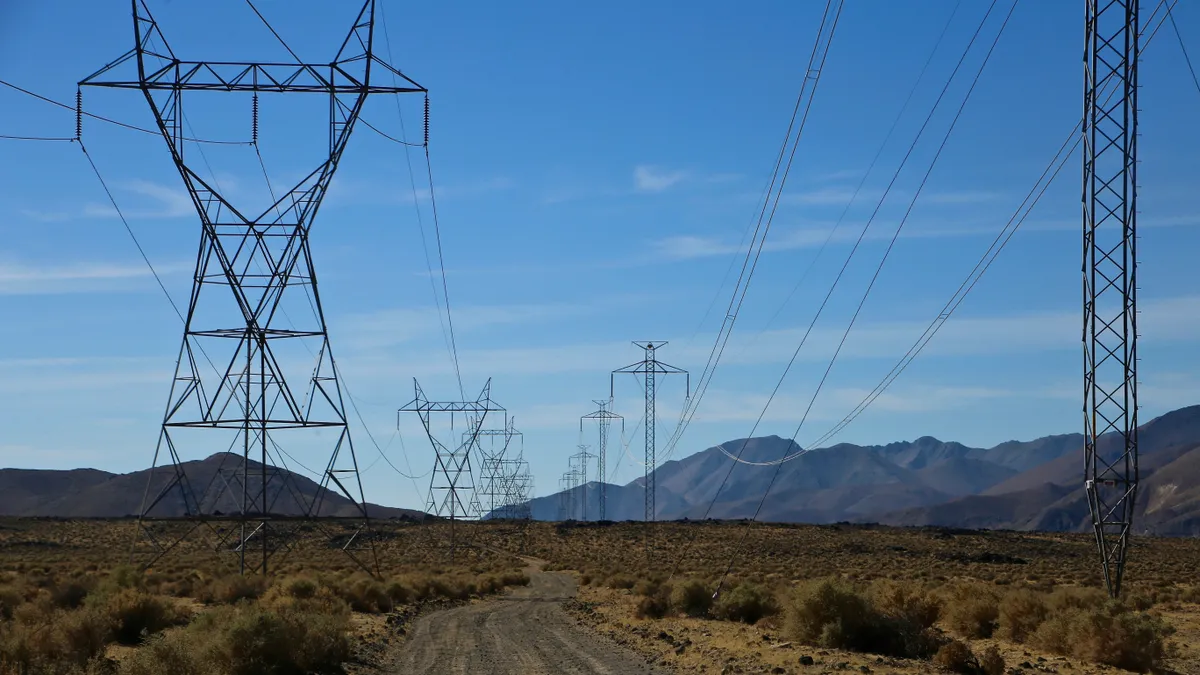Dive Brief:
-
Nevada’s ratepayer advocate, Public Citizen, and MGM Resorts International and Caesars Enterprise Services on Monday urged the Federal Energy Regulatory Commission to reject a request by two Berkshire Hathaway Energy utilities for incentives for building the roughly $2.5 billion Greenlink Nevada transmission project.
-
They contend the proposed incentives for Nevada Power and Sierra Pacific Power, subsidiaries of NV Energy, which is owned by Berkshire Hathaway, would needlessly increase consumer costs. The Public Utilities Commission of Nevada asked FERC to be aware of how the proposed incentives could affect customer rates.
-
“Berkshire Hathaway’s extraordinarily strong capitalization and liquidity render the corporation uniquely positioned to successfully mitigate risk for Greenlink without need to force captive customers to pay incentive rates,” Public Citizen said.
Dive Insight:
The debate over possible incentives for building the 525-kV Greenlink project comes as the U.S. is poised for a major buildout of its transmission system to better access areas with wind and solar generation. At the same time, FERC commissioners have been discussing the need to protect ratepayers from transmission costs and the agency is considering changing the incentives it provides to spur transmission development.
The Nevada PUC approved the western leg of the Greenlink project in 2021, but deferred final approval for its northern segment. Later that year, with NV Energy’s support, the Nevada Legislature mandated that the entire project be built by the end of 2028.
The NV Energy utilities on June 30 asked FERC to approve three incentives for the Greenlink project: the ability to recover all prudently incurred costs if the project is abandoned or canceled for reasons outside of NV Energy’s control; the deferral of pre-commercial costs through the creation of a regulatory asset; and, the opportunity to include all “construction work in progress,” called CWIP, in their rate base instead of waiting for a rate case after the project is built to recoup its costs.
The Nevada Bureau of Consumer Protection, or BCP, contends the incentives will drive up rates and that the utilities failed to explain why they need incentives to build a project that is mandated by state law.
Also, NV Energy President and CEO Douglas Cannon told the Nevada Legislature the utility company would provide all the financing for the project and utility customers wouldn’t pay anything for it until “at least five or six years,” the BCP said in arguing against the proposed CWIP incentive.
“The companies demonstrated through their aggressive and unrelenting efforts to gain approval to build Greenlink Nevada that the unprecedented $2.5 billion capital investment and return that NV Energy will earn on the investment was incentive enough for NV Energy to actively advocate for Greenlink Nevada for years,” MGM Resorts said.
Also, Berkshire Hathaway’s “superior” financial resources make the proposed incentives unneeded, and unjust and unreasonable, Public Citizen said.
When Berkshire Hathaway sought FERC’s permission to buy the NV Energy utilities in 2013, the company said Nevada customers would benefit from the parent company’s financial strength, according to Public Citizen.
“If the point of allowing a massive conglomerate like Berkshire Hathaway to control much smaller utilities like Nevada Power and Sierra Pacific was to allow them to tap into Warren Buffett’s pile of cash and credit, then it is not only unseemly but contrary to the public interest to now ask working families to pay new subsidies to Buffett’s empire out of their already stretched monthly utility bills,” Public Citizen said.















